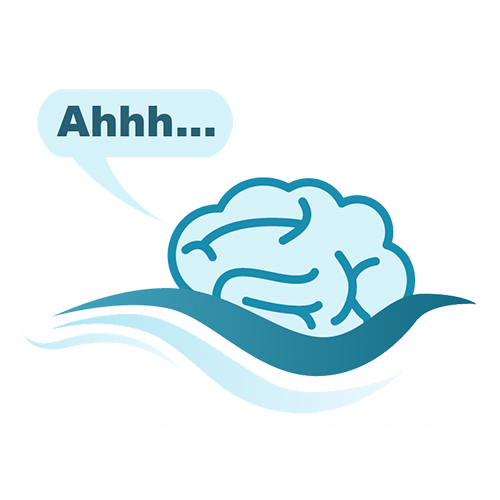The ideas of altered states of consciousness, mystical experiences, and voluntary self-isolation often bring with them images of shamans, spaced-out hippies, geometric art, and vibrant colors, as exaggerated stories and tales of these experiences get passed around. These misconceptions are reinforced through movies and TV shows. As many who have emerged from the tank can attest, it is often a much more dreamy, ethereal, and calming environment than is typically conveyed on screen.
Read MoreThe idea of yoga in the west often begins and ends with pictures of various movements you do in a cramped studio surrounded by other sweaty people. In reality, this is but one sliver of what yoga truly is. Rather than a physical workout that you do, yoga is more of a way of life that you pursue. It is an internal practice involving the mind and body, working towards alignment.
Read MoreLike many float enthusiasts, if you ask us what floating is good for, our first answer is often, “What is it not good for?” Having witnessed floating help so many people, it’s easy to think of it as a panacea for all sorts of ailments and afflictions. However, despite decades of published research, some in the medical field still look at floating with a side-eye, skeptical of the claims made by floaters.
From curing insomnia to heightening your athletic abilities, there are personal stories from all over the globe of the benefits of floating. Unfortunately, large-scale clinical trials are very expensive and time-consuming, and most of these claims either receive funding for small-scale studies, or aren’t able to be pursued at all with any rigor.
Read MoreThe feeling of getting off a long plane ride, worn out from the traveling you’ve already done, can sometimes stifle the excitement for the trip ahead. For especially long or arduous journeys, entire days can be lost or wasted trying to deal with jet lag and catch up on sleep. The drowsiness and exhaustion can certainly impact how you engage with new environments, and it can lead to seeing the world as duller and less interesting.
It can feel like you need a reset, much like when a computer gets overworked – simply rebooting it can fix a lot of problems, and the same is true for us. Starting your travels with a float can be just the reset you need, and it can help in a big way with alleviating symptoms of jet lag. It also enhances your senses, letting you take in your new surroundings in a fresh and exciting way.
Read MoreThe search for pain relief can drive people in many unexpected, and sometimes downright odd, directions – float tanks among them. With the high concentration of Epsom salt, the tank can fully support the body without any areas of pressure on your back. This alone has been shown to help with inflammation reduction, faster recovery times, and general pain management, which helps explain why many big-name athletes and sports teams (like Steph Curry, Tom Brady, the Seahawks, the Dodgers, the Cubs, and many more) incorporate floating into their recovery programs.
Beyond physical recovery, floating has also been shown to have many positive mental effects, such as reducing anxiety and depression, while increasing energy levels and serenity. These particular benefits have been backed by scientific research, but since floating is still a largely under-researched field, many of the stories that claim benefits from floating haven’t been explored through official studies. There are, however, some benefits that are being explored through smaller scale research programs and case studies that, while not official, show promise and can help lead to new findings and larger scale studies in the future.
Read MoreAlthough the environment for floating is carefully constructed and controlled, it doesn’t stop every float being its own unique experience. This is true, not only from person to person, but also from float to float. The float tank is a neutral environment, but every individual brings in their own unique state of mind and body. It’s one of the reasons we always recommend playing around with different times of day (and days of the week) when you’re starting to float, so that you can find what you enjoy most consistently for your own practice.
What you’ve been thinking about, how much you’ve exercised recently, how sleepy you are, and even how long it’s been since your last visit can all impact the nature of your experience. With that said, there are a few surprising things that have way LESS impact on your float experience than you might think. These include the temperature and weather outside, the style of tank that you use, and even what your intentions and expectations are going into your session.
Read MoreVisual-Spatial Intelligence is the ability to rotate an object in your mind. Those with a strong visual-spatial intelligence see the big picture, recognize patterns, and are very inventive. We often see this in professions that work in three dimensions such as architecture, engineering, and sculpting.
Architects, for example, plan a building by examining many points of view. They see how each space flows into the next and what vibe that might create. Plan your future house by envisioning spaces that are customized to your ideals of comfortable living. Sensory deprivation tanks provide a unique opportunity that’s free of distractions and allows you practice visualization. When you reach stillness, the Epsom salt relaxes your muscles while your mind focuses on processing information, weighing decisions, and considering your dreams.
Read More“The tank is a general-purpose tool, not a design for something in particular. It is nothing and it is a powerful instrument for change. It is an environment for learning about oneself, in whatever way one wishes. It does not tell us what to do… we trust in the inherent capacity of the individual to discover what is best for themselves.”
- Glenn and Lee Perry, Floating in Quiet Darkness
(manufacturers of the first commercial float tanks)








